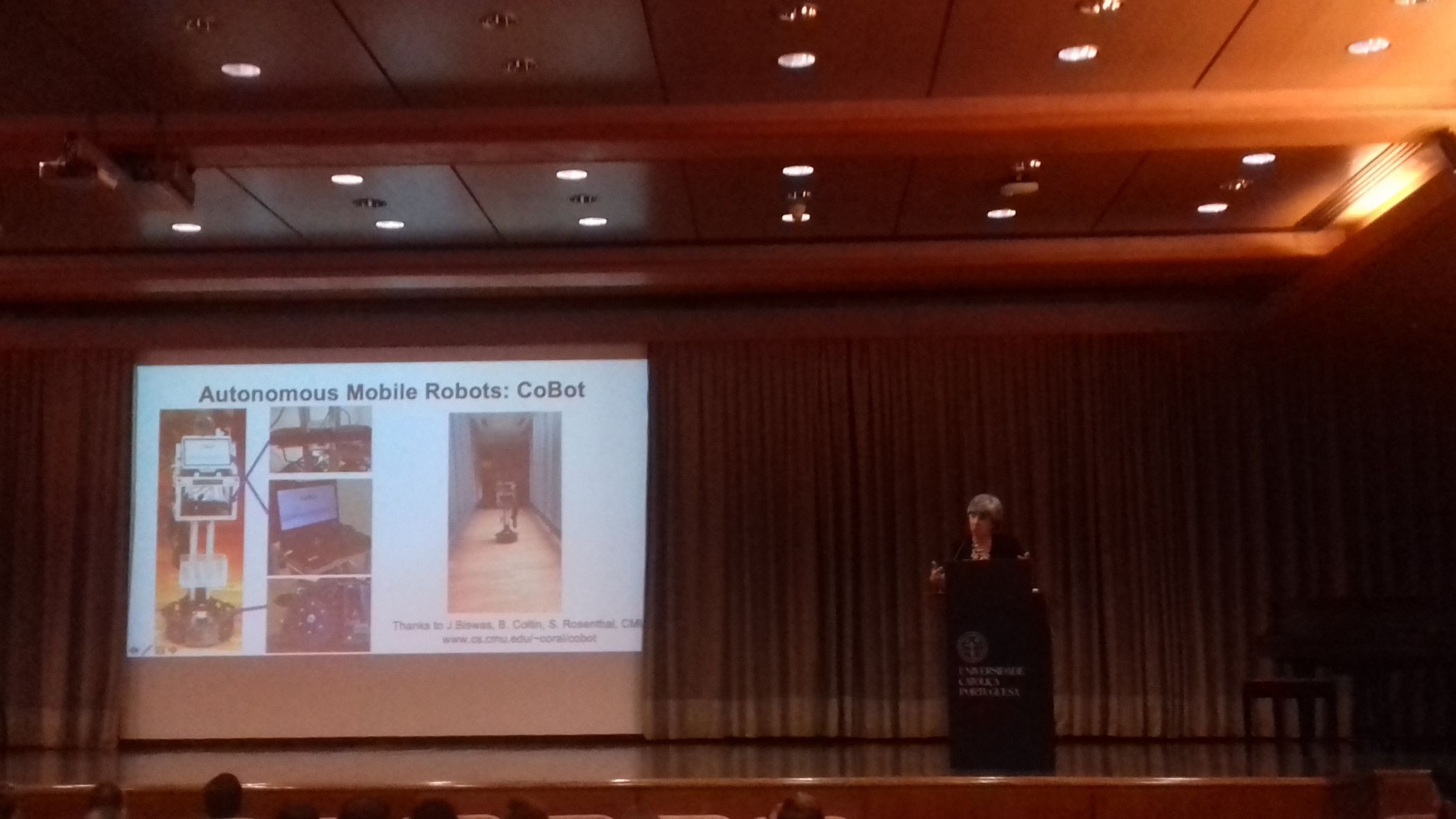Far from distinctive scenarios in which omnipotent machines rebel against Man, Manuela Veloso asserts herself as a natural optimist when it comes to the world of artificial intelligence. The current director of the Artificial Intelligence Research Center at the North American bank JP Morgan and researcher at Carnegie Mellon University (CMU), in the United States, was at the Universidade Catlica Portuguesa in Lisbon for a conference centered around the past, present and future of the AI.
For Manuela Veloso, the key to reaching the potential of technology is in the continuous cooperation between man and machines, remembering that any AI system will always be limited. Now there is a lot of talk about AI and there is a certain idea that it will solve all the problems in the world, but we must be aware that this is a very new technology, with about 60 years of development, recalled the researcher.
Over six decades there has been a great evolution in AI systems in areas such as data recognition, such as images or text, and even in learning taking into account the feedback given by humans. According to Maria Veloso, the current challenge is to make technology capable of making decisions for us, justifying the options it chooses and the recommendations it makes to users.
The researcher explains that to overcome the challenge, it is necessary to understand the limitations of AI. CoBots, service robots with autonomous navigation developed and used at CMU, were the practical example chosen by the teacher to elucidate the audience.

Developing a creature that was able to live in symbiotic autonomy with humans was, for the team led by Manuela Veloso, something much more interesting than creating something that was totally autonomous. Thus, CoBots were programmed to be aware of their limitations, being able to ask for help from humans, learning from the feedback received.
Although they are gifted with intelligence, the robots that provide transportation and guide services at CMU still have difficulty explaining their problems to humans. The question was the basis of one of the doctoral theses that Maria Veloso supervised, which focused on an attempt to translate the internal representations of the CoBots' brain into a language perceived by humans.
Furthermore, CoBots are still unable to understand, for example, dangerous situations around them. Robots do not have the same attention and perception than we do for unusual things, said Manuela Veloso. It is true that there is still a long way to go to overcome current challenges and arrive at truly intelligent systems, but the researcher makes it very clear that I need to persist.
A leap from the world of research to that of finance
In 2018, Manuela Veloso became the director of the AI Research Center at J. P. Morgan. The researcher said that the transition from the world of the Academy to that of finance was motivated by an idea of technological transformation of the institutions that were born before the digital age. How are the benefits of computing and AI brought to these dinosaurs? was the question behind his decision to join the North American bank's investigation department.
Since then, he has developed several projects, transposing his experience of more than 30 years to a territory previously unknown to him. The responsible person made known, for example, how the team that leads managed to train a neural network to apply certain classifications in transactions on the stock exchange with an accuracy in the order of 95%.
In the area of finance, I need to think about problems creatively. To help solve the profusion of Power Points and reports created by J.P. Morgan, in all about one billion a year, the AI Research Center team created the AI pptX. The system is capable of automating the process of creating documents and detailed presentations, being described by Manuela Veloso as something truly formidable.
However, and despite her enthusiasm for implementing AI processes that facilitate financial tasks, the officer has been facing a battle against US banking regulators, given their uncertainties regarding the application of technology. For Manuela Veloso, the issue of gaining confidence in technology is of paramount importance and, for this, it is necessary to ensure that tests are carried out until the systems can be functional.
